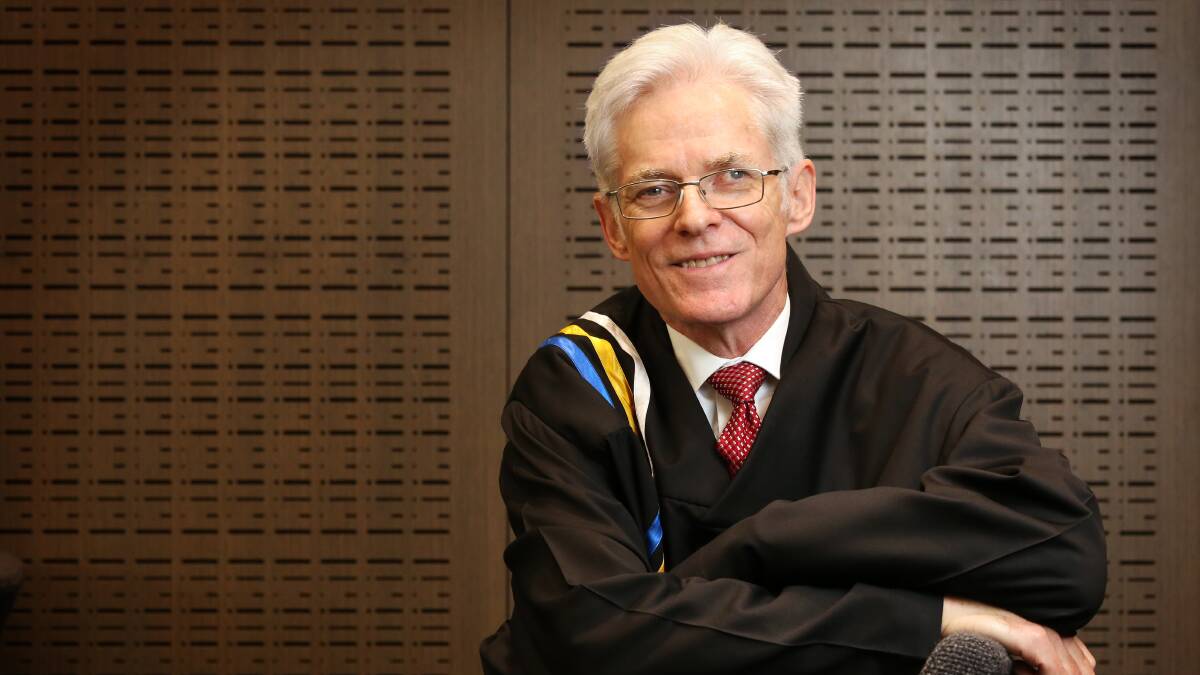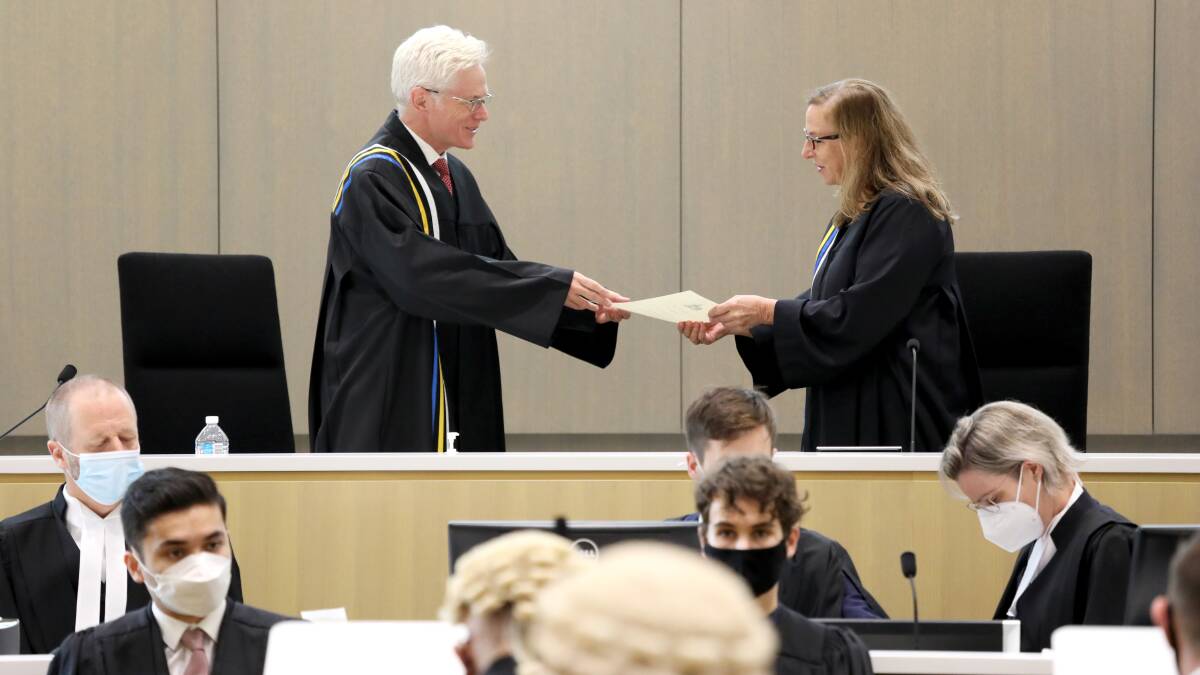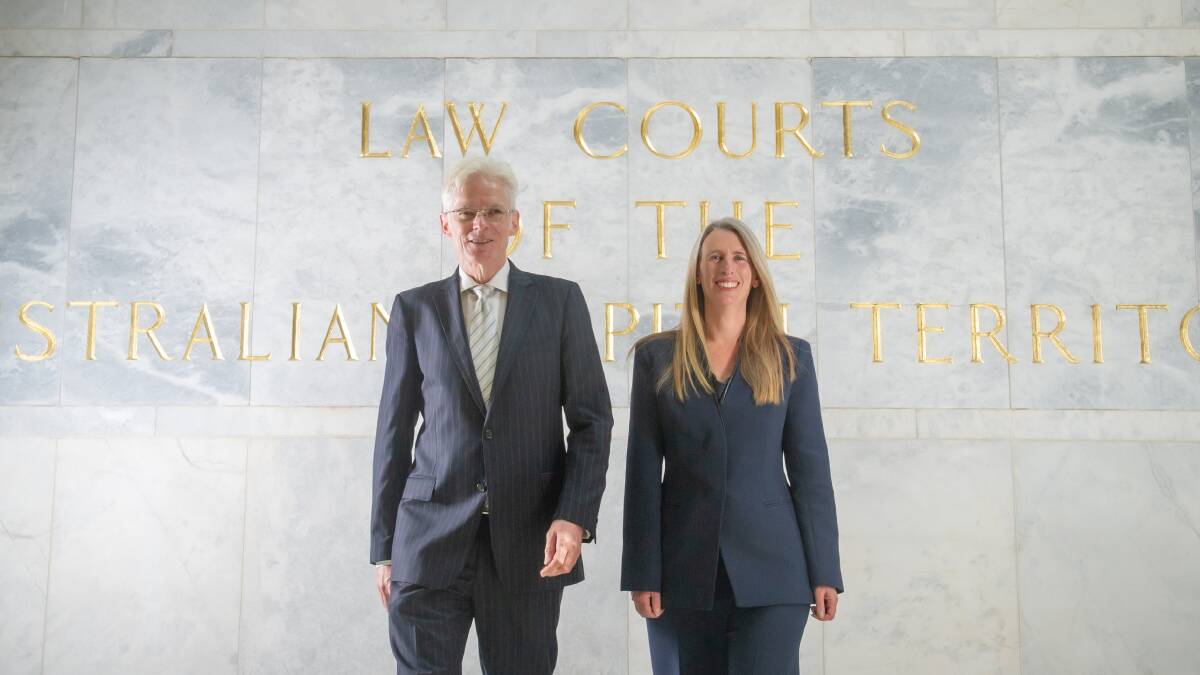
The budding rowing career of Justice Geoffrey Kennett hit a snag when, growing up in Canberra, he struggled to reach the minimum weight required for races.
So the new ACT Supreme Court judge sought the assistance of two house bricks, which tipped the scales back in his favour when it came time to be weighed.
"Clearly, your honour was demonstrating, from a very early age, the kind of lateral thinking required for a successful career in the law," ACT Bar Association vice-president Jack Pappas said on Monday.
Mr Pappas made that comment at a ceremonial sitting to mark the latest chapter in the highly successful career of Justice Kennett, as the latter was sworn in as a judge.
The new role brings Justice Kennett back to a city he joked was full of "better restaurants and many more apartment buildings than when I left".
He had been away for more than two decades, having left for Sydney to work as a private barrister in 1998 after starting his career with a 13-year stint as a government lawyer in the federal public service.

Justice Kennett developed expertise in public law and, after being appointed senior counsel in 2010, appeared in several significant High Court cases with subjects ranging from immigration to war crimes.
Mr Pappas said Justice Kennett had achieved such an "enviable rate of success", his name was now "sprinkled like dust" throughout the resumes of junior lawyers who were keen to boast of any association with his work.
Some of Justice Kennett's opponents went on to careers on the High Court bench, and the new judge admitted he would miss being an advocate as he made his own leap.
"I loved being a barrister, at least most of the time," Justice Kennett said.
"Sometimes the cases were a bit dreary, but I always used to say it beat having a job."
In one significant matter, in 2019, he acted pro bono for an Indigenous man and successfully argued tenants of Wreck Bay Aboriginal Community Council properties were entitled to Residential Tenancies Act protections.
MORE COURT AND CRIME NEWS
- Student teacher pleads not guilty as new child sex charge laid
- High Court shoots down Canberra bikie's last-ditch appeal bid
- Victim bursts into tears 'without any obvious reason' since armed robbery
- Charity founder's reputation 'decimated' by fraud revelations
Indigenous communities remained at the forefront of Justice Kennett's mind on Monday, when he described the over-representation of Aboriginal and Torres Strait Islander people in prison as a "great emergency" and welcomed newly appointed Chief Justice Lucy McCallum's focus on addressing that issue.
He also spoke of being happy to be back in Canberra, where he grew up in Hughes and developed a love of the outdoors by exploring the Brindabella ranges.
Justice Kennett's parents had worked hard to provide him with opportunities that had not been available to them, he told the ceremonial sitting with a note of sadness.
"My father died last month," the new judge said.
"He would very much have liked to see this day."

In a happy piece of family news, however, Justice Kennett became a grandfather just three weeks ago.
He acknowledged that his personal life would not be the only area of significant change, with a learning process ahead of him as he adjusted to life on the bench.
"I'm very aware that I'm going to be exposed to aspects of the rich tapestry of life that I'm not used to seeing," Justice Kennett said.
Chief Justice McCallum expressed her confidence in Justice Kennett's ability to make the transition, telling him he would bring "great intellectual strength to the court" after he presented her with his commission.
Justice Kennett's appointment was announced earlier this month alongside that of Belinda Baker, who is currently a deputy senior crown prosecutor in NSW.
Ms Baker will take up her Supreme Court post in December, when Justice Michael Elkaim is due to retire.







